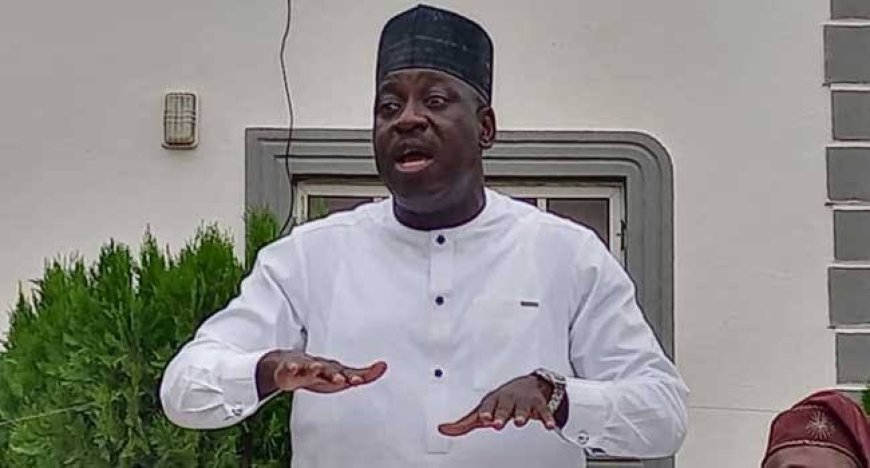Early elections could stall development, ADC cautions NASS

The African Democratic Congress has cautioned the National Assembly against its proposed plan to amend the Electoral Act and shift the 2027 general elections to November 2026, warning that such a move could disrupt governance and derail Nigeria’s development trajectory.
ADC, in a statement on Tuesday by its National Publicity Secretary, Bolaji Abdullahi, noted that bringing the elections forward would shorten the effective period for governance, push the nation into a perpetual campaign mode, and hinder the implementation of long-term development plans.
The National Assembly had on Monday begun moves to adjust the 2027 general elections, proposing that the presidential and governorship polls be held in November 2026 instead. The development has sparked mixed reactions among Nigerians and political observers.
While some critics have accused lawmakers of attempting to extend President Bola Tinubu’s time in office, others argue that the move, if well-managed, could help strengthen Nigeria’s electoral framework and improve the credibility of the process.
The proposal, which is part of broader amendments to the 2022 Electoral Act, seeks to advance the elections by about six months to ensure that all pre- and post-election disputes are resolved before the official handover date of May 29, 2027. If approved, it would mark a major shift from the traditional February or March election timeline.
Reacting, ADC urged lawmakers to prioritise strengthening democratic institutions and ensuring stability rather than engaging in politically motivated amendments.
Abdullahi stated, “The African Democratic Congress has noted the proposal by the National Assembly to amend the Constitution in order to hold the 2027 general elections in November 2026. While we understand the stated intent, which is to provide more time for the resolution of election petitions before the inauguration of a new administration, the ADC believes that this amendment risks creating deeper problems for Nigeria’s democracy than it seeks to solve.
By cutting the current political calendar by six months, the proposal threatens to push Nigeria into a state of permanent electioneering, where politics dominates governance and development is perpetually on hold.
“In practice, elections happening in November 2026 mean campaigns will begin as early as 2025. That leaves barely two years of real governance before the political noise takes over. The President, ministers, governors, and other public officials vying for office or campaigning for others will shift their focus from performance to positioning. Policies will stall, projects will be abandoned, and the entire system will tilt towards 2026 instead of 2027.
“Even without the amendments, we can see with the current APC government what happens to a country where an administration is obsessed with power rather than the welfare of the people. Even under the current timetable, the incumbent structures at the state and federal levels are already campaigning. In this regard, moving the elections backward will only accelerate this unhealthy trend and reduce our democracy to mere electioneering.”
ADC urged the National Assembly to drop the amendment and prioritise broad electoral reforms that ensure credible polls and swift dispute resolution, rather than reducing governance to mere politics.
The party stated, “If the goal of the proposed amendment is to ensure that election petitions are concluded before inaugurations, the answer is not to cut short tenures or rush the electoral process. The solution lies in strengthening our institutions by enforcing strict timelines for tribunals, reforming electoral laws, and improving the capacity of the judiciary and INEC.
“Other democracies have shown that it is possible to maintain fixed electoral timelines while ensuring quick adjudication of disputes. In Kenya, for instance, the Supreme Court must resolve presidential election petitions within 14 days under the 2010 Constitution. Indonesia’s Constitutional Court decides similar disputes within 14 working days after hearing, while Ghana’s Supreme Court is required to conclude presidential petitions within 42 days. Even in South Africa and other democracies, electoral cases are handled through expedited judicial processes. As these examples have shown, the amendment that we need is the one which ensures timely electoral justice through institutional efficiency, not by altering the election calendar to accommodate inefficiency.
“Changing the date of elections without fixing the underlying weaknesses in our electoral matters adjudication and other fundamental electoral weaknesses will not solve the problem. Countries that manage early campaigns effectively do so with firm institutional safeguards.
The people of Nigeria are not just voters, they are citizens who expect good governance as dividends of democracy. Nigeria cannot afford a system that allows government to campaign for two years and govern for two.”
culled from punch.

 admin
admin 


